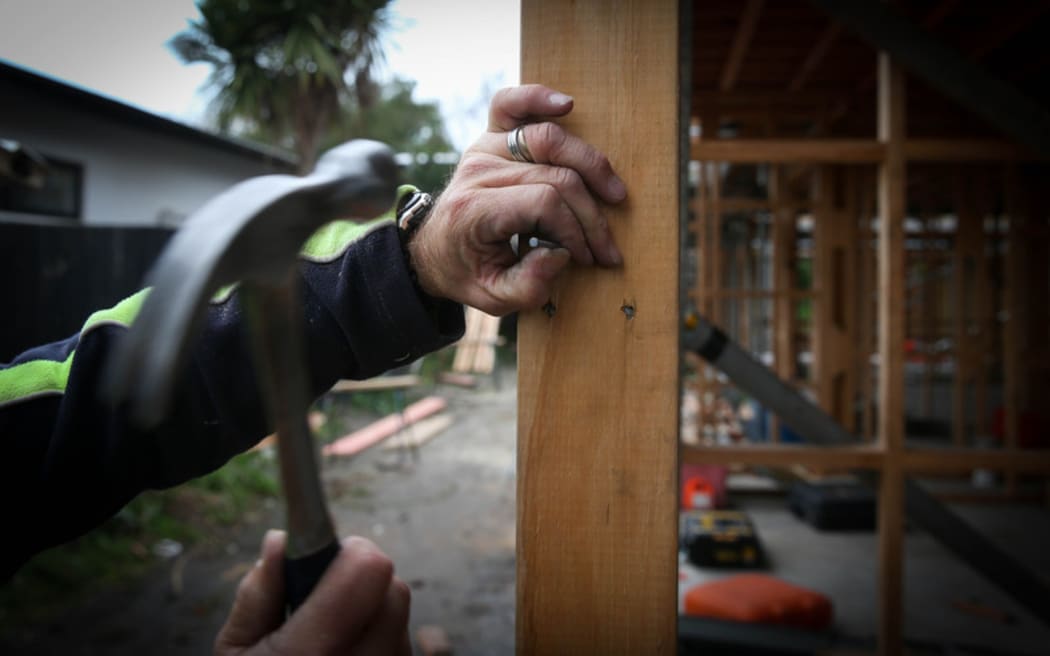Academics are warning the Pacific could be gripped by civil unrest unless more is done to occupy the region's growing youth population.
Fifty percent of Pacific island people are now under the age of 25, a phenomenon called the "youth bulge."
Advocates say governments and communities must enhance employment opportunities for the region's young before they turn to crime.
Ben Robinson Drawbridge reports.

More employment options, particularly in trades, are needed for the Pacific's growing youth population.
Photo: RNZ / Alexander Robertson
Transcript
Avoiding a lost generation is the name of a seminar the PhD candidate Aidan Craney will give on Monday at the Australian National University. Mr Craney says the youth bulge is an untapped resource for the Pacific that if disregarded could cause social instability.
"If you have educated, engaged youth, who feel like their potential can be reached then they really can move their communities and their countries forward. They can be the change makers, they can be the job creators. But if they're disengaged and they're disenfranchised then you do run the risk of them becoming apathetic towards the grander ideals of society. That's when you are most at risk of seeing civil conflict, civil unrest and general anti-social behaviour such as fighting, substance abuse, thievery, these sorts of issues."
In Solomon islands, the PhD candidate Daniel Evans is studying work schemes for young people, where youth unemployment could be as high as 75 percent. Mr Evans says the benefits of Honiara's Youth at Work internship programme and its Rapid Employment infrastructure project are not clear.
"That's not to say that these programmes aren't having very positive effects on the youth that partake in them. It's just indicating that the employment results for these projects aren't fantastic on the basis of available data. So there is no real evidence that these projects are impacting on national employment."
Aidan Craney says skill gaps in Pacific economies are not being filled by local graduates who are not being encouraged to become trades people.
"The problem there seems to be as much as anything skilled trades and also the education systems that provide skilled trades (people). Training vocational centres, rural training centres, they're not held in the same esteem within the community. Youth unemployment is a huge problem throughout the pacific and yet we have a lot of young people attending university and coming through with qualifications in the service sector as accountants as lawyers. There's a tension between the needs of the employment sector versus the output of the education sector."
The co-ordinator of the Pacific Youth Council Tarusila Bradburgh says parents and communities have a roll to play in breaking down the stigma of learning a trade.
"We have to change that mindset. We still have in our families and in our communities, telling our children - work hard in school so you can become a lawyer, a doctor, a nurse, work in the office. Very rarely do we say to our children - be a carpenter, a plumber. They're getting good pay around the Pacific with a growing construction industry. This kind of information needs to go out to our communities, to our parents so that it's not just biased to white collar jobs and having an office and not getting your hands dirty."
Tarusila Bradburgh says governments need to invest in vocational training centres to entice more students into lucrative trades sectors.
To embed this content on your own webpage, cut and paste the following:
See terms of use.


